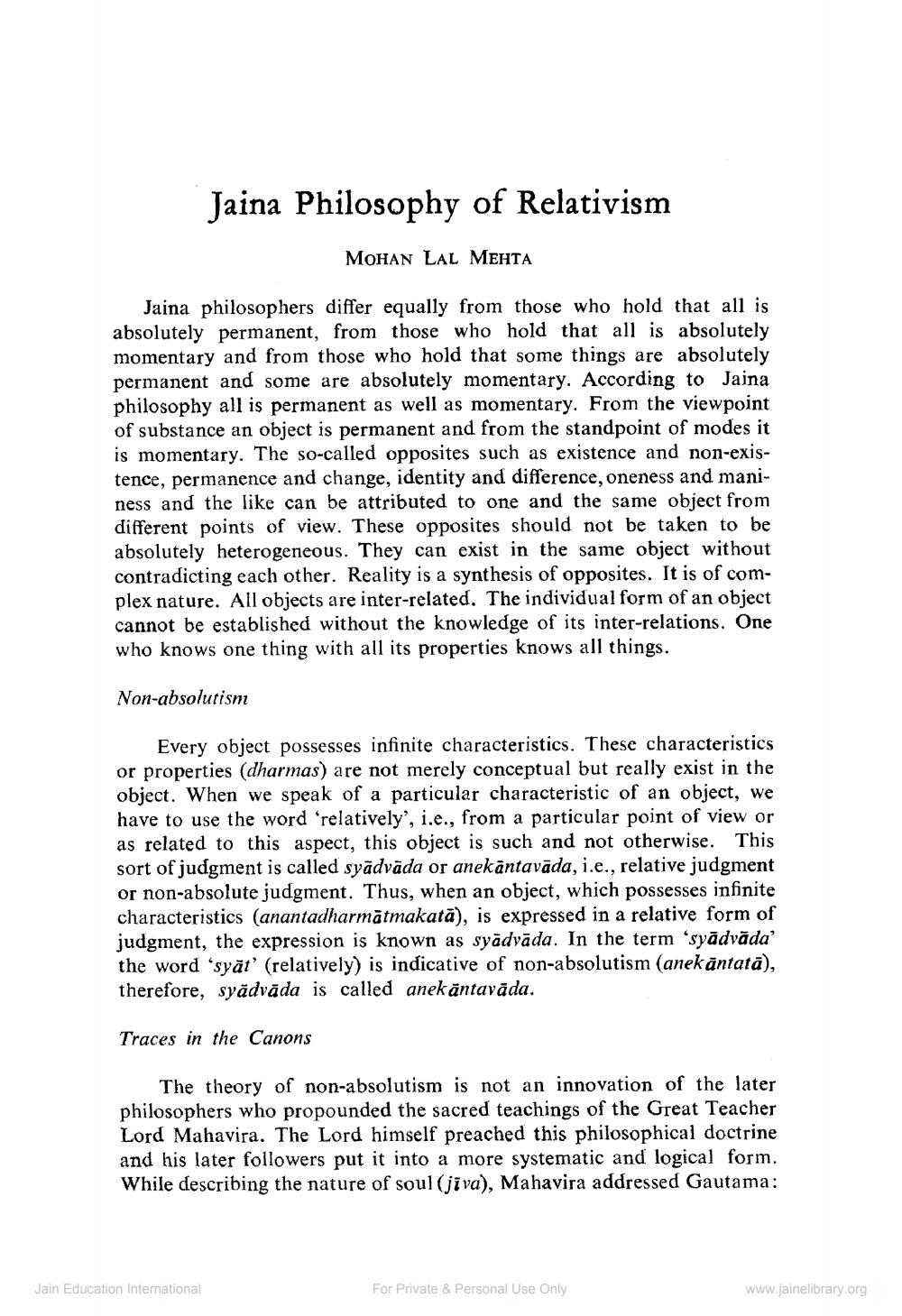Book Title: Jain Journal 1987 07 Author(s): Jain Bhawan Publication Publisher: Jain Bhawan Publication View full book textPage 8
________________ Jaina Philosophy of Relativism MOHAN LAL MEHTA Jaina philosophers differ equally from those who hold that all is absolutely permanent, from those who hold that all is absolutely momentary and from those who hold that some things are absolutely permanent and some are absolutely momentary. According to Jaina philosophy all is permanent as well as momentary. From the viewpoint of substance an object is permanent and from the standpoint of modes it is momentary. The so-called opposites such as existence and non-existence, permanence and change, identity and difference, oneness and maniness and the like can be attributed to one and the same object from different points of view. These opposites should not be taken to be absolutely heterogeneous. They can exist in the same object without contradicting each other. Reality is a synthesis of opposites. It is of complex nature. All objects are inter-related. The individual form of an object cannot be established without the knowledge of its inter-relations. One who knows one thing with all its properties knows all things. Non-absolutism Every object possesses infinite characteristics. These characteristics or properties (dharmas) are not merely conceptual but really exist in the object. When we speak of a particular characteristic of an object, we have to use the word 'relatively', i.e., from a particular point of view or as related to this aspect, this object is such and not otherwise. This sort of judgment is called syadvāda or anekāntavāda, i.e., relative judgment or non-absolute judgment. Thus, when an object, which possesses infinite characteristics (anantadharmatmakata), is expressed in a relative form of judgment, the expression is known as syādvāda. In the term 'syādvāda' the word 'syat' (relatively) is indicative of non-absolutism (anekāntatā), therefore, syädvāda is called anekäntavāda. Traces in the Canons The theory of non-absolutism is not an innovation of the later philosophers who propounded the sacred teachings of the Great Teacher Lord Mahavira. The Lord himself preached this philosophical doctrine and his later followers put it into a more systematic and logical form. While describing the nature of soul (jiva), Mahavira addressed Gautama: Jain Education International For Private & Personal Use Only www.jainelibrary.orgPage Navigation
1 ... 6 7 8 9 10 11 12 13 14 15 16 17 18 19 20 21 22 23 24 25 26 27 28 29 30 31 32 33 34 35 36 37 38 39 40 41 42 43 44 45 46 47 48 49 50 51 52 53 54 55 56 57 58 59 60 61 62 63 64 65 66 67 68 69 70 71 72 73 74 75 76 77 78 79 80 81 82 ... 88
